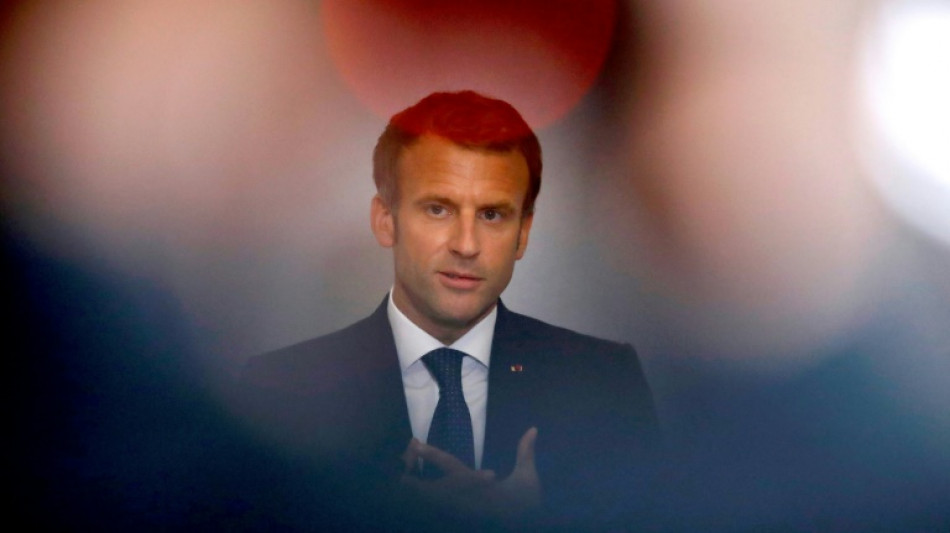

Eyeing new term, Macron walks tightrope on vaccinations
Emmanuel Macron's uncompromising stance against the unvaccinated has drawn praise from supporters, but his combative Covid strategy could backfire in a French presidential election that is far from a foregone conclusion.
The former investment banker is betting his tough stance on jabs -- combined with plans to start lifting Covid restrictions in February -- will ensure broad support when he seeks a second five-year term in April.
Macron's blunt comments earlier this month that he wanted to "piss off" the unvaccinated marked a new level in his impatience with those unwilling to fall in line with his vaccination push.
But despite high approval ratings of his handling of the crisis, including a new requirement of full vaccination to enter most public venues, there are signs his divisive comments could backfire.
"It's an advantage for Macron, he can play up the success of his vaccination drive," said Emile Leclerc, director of research at polling firm Odoxa, noting France's more than 80 percent vaccination rate overall.
"His forceful language has been effective."
But an Odoxa poll published Tuesday saw Macron's approval ratings slump six points to just 39 percent, the lowest in nine months -- a clear response to his outburst against the unvaccinated.
"For some people there's still a very strong perception, even if not shared by everyone, of a president who's a bit arrogant," Leclerc told AFP.
The pugnacious phrase was the latest example of a "transgressive style" that has punctuated his presidency, Giuliano da Empoli, a political scientist who teaches at Sciences Po Paris.
"It's clear he is not going to give up on an element that constitutes a large part of his success," he wrote in French daily Le Monde.
Yet if the health crisis does ease, Macron may find it harder to maintain support as issues like inflation and weakened spending power, or security and immigration, return to the fore.
"This crisis is like a pressure cooker -- as long as it's tightly closed, everything's fine, but all of a sudden if you open it a bit, the thing could explode," Leclerc said.
Support among his centre-right base remains steady, and most experts expect Macron will easily make it to the second round of voting.
But if his run-off rival is the conservative Valerie Pecresse instead of the extreme right's Marine Le Pen, Macron's success in getting 80 percent of the country vaccinated might not carry him over the line.
"If it's Pecresse he's going to have a much harder time attracting a wider electorate, because he'll have to be much more courteous and consensual," said Jean Viard, a veteran sociologist and former municipal councillor in Marseille.
- Crunch time -
Pecresse, a former budget minister whose emergence as a top threat to Macron surprised pundits, has criticised of Macron's "contemptuous" governance a cornerstone of her campaign, vowing to "repair and unite the country" in his place.
That promise of fresh air could resonate among voters anxious for a return to normalcy after two years of Covid, including centre-left moderates dismayed by the disintegration of the Socialist party.
In a race where high abstention rates are again expected to inject volatility, an Ipsos poll on Saturday found that left-wing voters appear far less likely to vote for Macron -- dubbed early on "president of the rich" -- in a runoff.
Just 24 percent of supporters of the firebrand Jean-Luc Melenchon, who currently scores highest on the left, said they would back Macron this time around, while only two-thirds of Socialist or Greens voters said they would.
Viard noted as well that "older people vote the most for Macron, but they could very well stay home over fears of catching Covid."
Macron has said he "wants" another term but has not yet declared his candidacy, and press reports suggest he will put it off as long as possible, considering that a first-round victory is all locked up.
But as Leclerc at Odoxa said: "A new phase in the campaign is opening -- his popularity is falling, and lots can still happen in the next two months."
H.Graumann--HHA



